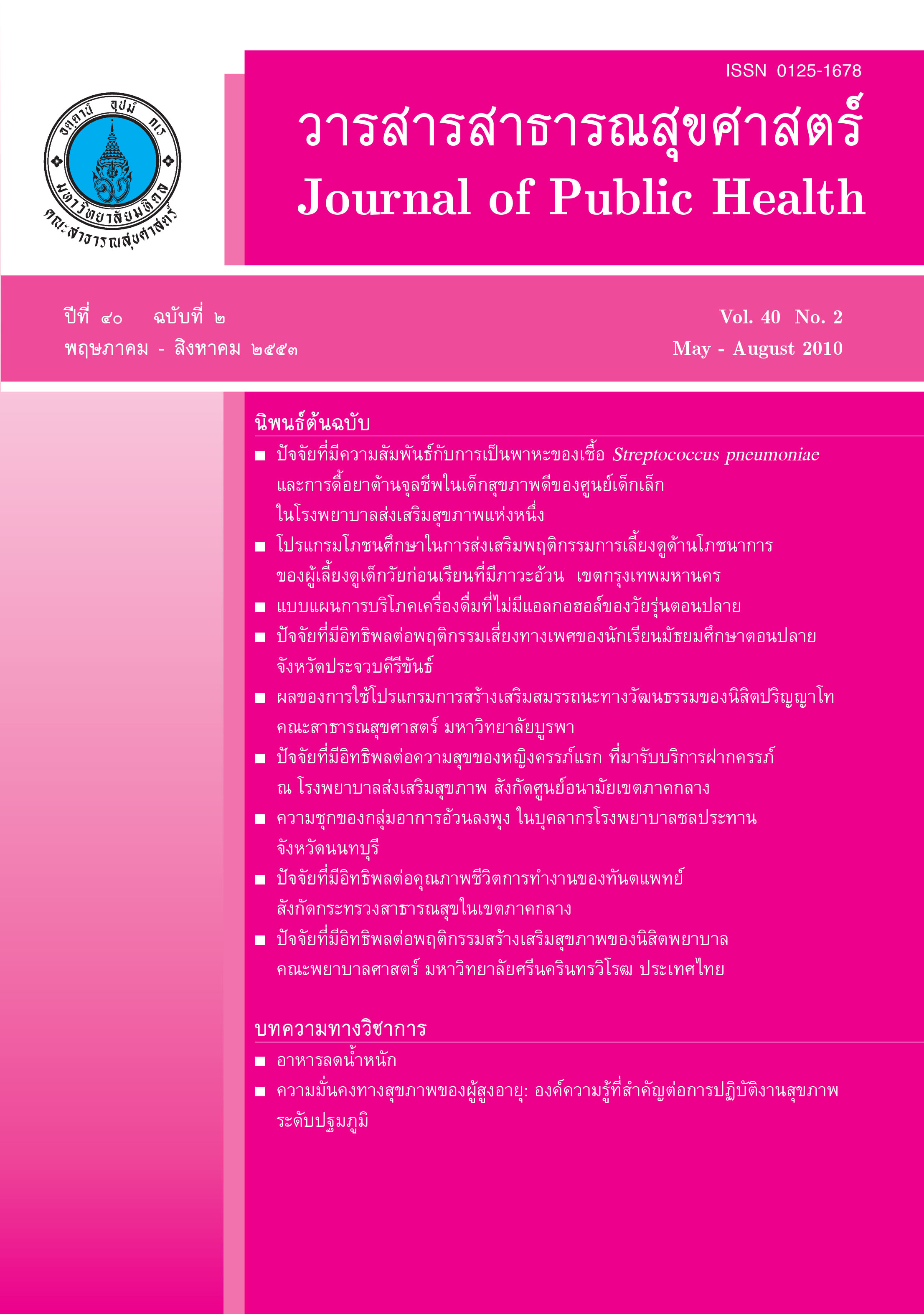อาหารลดน้ำหนัก
Keywords:
Obesity, Calorie, Fat, Carbohydrate, Glycemic index, Weight-loss diets, โรคอ้วน, พลังงาน, ไขมัน, คาร์โบไฮเดรต, ดัชนีน้ำตาล, อาหารลดน้ำหนักAbstract
ABSTRACT
The increasing prevalence of obesity has become one of the major public health concerns in many countries around the world including Thailand. Concomitant with this increase in the prevalence of obesity has been the rise in the number of weight-loss diets, many of which alter macronutrient composition. The traditional dietary recommendations for weight loss are low-calorie and low-fat diets which can reduce body weight in the long term. Moreover, a low-carbohydrate diet is attractive because it promises rapid weight loss. The mechanisms of action of a low-carbohydrate diet act via body water loss, increase of lipolysis, decrease of lipogenesis, and hunger control. Low-carbohydrate diets also could be better in terms of short-term weight loss relative to low-fat diets, however long-term effects should be considered for safety. Furthermore, a low-glycemic index diet is interesting for weight reduction because it promotes satiety and suppresses hunger, stimulating greater weight loss than a high-glycemic index diet. The Mediterranean diet, which contains a very high level of monounsaturated fats, fruits, vegetables, and cereals, is also becoming an increasingly popular weight-loss diet because of its health benefits, particularly regarding decreased cardiovascular risk.
Key words: Obesity, Calorie, Fat, Carbohydrate, Glycemic index, Weight-loss diets
Downloads
Issue
Section
License
Creative Commons License CC-BY-ND


